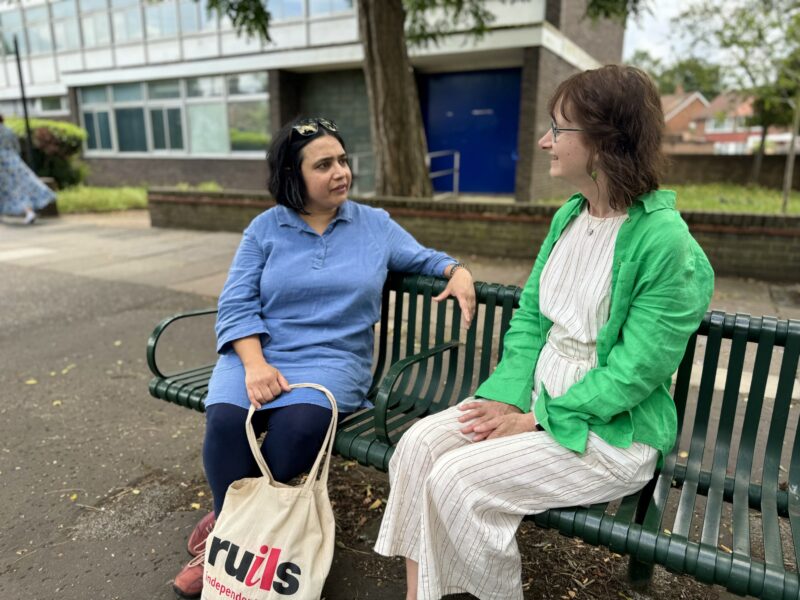Home > Hub article > Types of schools
Types of schools
Updated: 12/12/24
Created: 08/11/2024, Bright Futures @Ruils
Who by? Bright Futures @Ruils
Why might it be of interest?
The differences in how a school is run, whether they follow the national curriculum, etc may be part of your decision making process in choosing a school for your young person.
Maintained schools: these are schools controlled by a local authority, ie maintained by a local authority and often referred to as ‘state’ schools. These can include mainstream schools (community schools, voluntary-aided, trust, foundation or grammar schools); nurseries (free standing or part of a community primary school; special schools; alternative provision (eg pupil referral units; and post-16 institutions (further education colleges and sixth form colleges)
Academies: a generic term but if a school is described as an ‘academy’ it will usually be controlled and funded by the Secretary of State, ie it is not controlled by the local authority in which it sits. These schools will include Academies, Free schools, UTC schools, Studio schools, Academy special schools, alternative provision Academies and Academy boarding schools.
They are subject to a contract between the Academy trust (owner) and the Secretary of State known as the ‘Funding Agreement’. Much (but not all) of the law and guidance for maintained schools applies to them as do many of the regulations for independent schools. They are subject to the same inspections as state schools by Ofsted but will have more freedom than Maintained schools in the way they are run and the curriculum they follow.
Maintained schools and Academies make up the majority of educational settings in England.
Special schools: usually local authority funded (ie Maintained) but can also be independent. Providing education to students with learning disabilities or learning difficulties who cannot or would prefer not to integrate into a mainstream school. Almost all students will have an EHCP.
Specialist schools: these are usually secondary schools with an arts or a science technology focus. They will provide a full curriculum.
Don’t confuse special school with specialist school!
Grammar schools: can be run by the local authority, a foundation body or an academy trust – they select their pupils based on academic ability and there is a test to get in.
Foundation schools and voluntary schools: funded by the local authority but have more freedom to change the way they do things – sometimes they are supported by representatives from religious groups.
Faith schools: follow the national curriculum but have freedom over what they teach in religious studies and may have different admission criteria.
Free schools: funded by the government, not the local authority. All ability schools so cannot select on academic ability like a grammar school. They do not have to follow the national curriculum and may vary their term dates or length. A University Technical College (UTC) is an example of a free school as are studio schools – usually small and teaching through project based learning. Similar to Academies but with more options as to who can set one up.
Independent schools: a bit of a catch all term which means schools and colleges not controlled by an LA or the Secretary of State. Mostly controlled by charities (ie not for profit) and their provision is not standardised in the same way as the state sector. These include prep schools, public schools and private nurseries. Likely to offer a wider range of extra-curricular activities, teach in smaller classes, etc.
Non-maintained special schools: all charitable foundations and not for profit. Almost all pupils will have funding through an EHCP. They are approved under section 342 of the Education Act 1996.
Section 41 schools: These are independent special schools which have been approved by the Secretary of State under section 41 of the Children and Families Act (“CAFA”) 2014 as schools which a parent or young person can request to be named in an EHCP. Institutions are only included on this list with their consent.
Non Section 41: the LA has more discretion whether to name the school or not and the school cannot be directed to accept the young person even if they are named.
Private post-16 institutions: These may also opt for section 41 status.
Mainstream and maintained: are not the same thing! Maintained describes how a school is controlled (usually the local LA) whereas Mainstream describes the provision.
EOTAS: Education other than at school. This is not the same as elective home education – where you have chosen to educate your young person outside of school. It is a form of education funded by the LA for young people with an EHCP for whom school or college is not appropriate. It can include online schooling, home tuition, therapies, etc. Legislation is laid out in section 61 of the Children and Families Act 2014. I think it goes without saying that this is not easy to secure this provision.
Useful links:
https://www.ipsea.org.uk/types-of-schools-and-other-settings
https://www.gov.uk/government/publications/independent-special-schools-and-colleges
https://www.gov.uk/types-of-school
Categories: Education, Education & Employment
Tags: school
